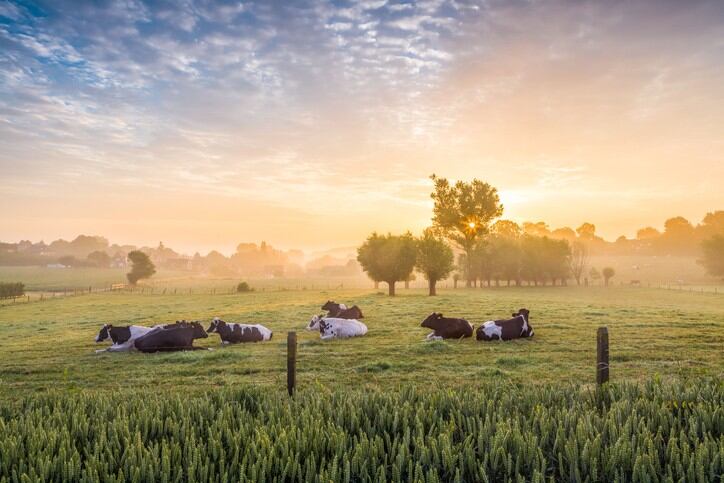The move will help protect, renew and restore the environment and improve the livelihoods of farming communities, the company said.
Nestlé said it will work with its food system partners, including the company’s network of more than 500,000 farmers and 150,000 suppliers, to advance regenerative farming practices at the heart of the food system. The company will also initiate new programs to help address the social and economic challenges of the transition.
Defining regenerative agriculture
Typically, regenerative agriculture incorporates practices such as cover cropping, no till methods, crop rotation, mixed farming, and hedgerows to support biodiversity. In its grandest sense, regenerative agriculture can be used to take carbon out of the atmosphere and return it to the soil. Over a longer timeframe, this delivers results not only in terms of tackling atmospheric CO2 but also improves soil health and productivity through carbon sequestration, with the potential to reduce reliance on chemical fertilisers.
Nestlé said wants to promote the enhancement of biodiversity, soil conservation, regeneration of water cycles and integration of livestock.
Agriculture accounts for nearly two-thirds of Nestlé's total greenhouse gas emissions, with dairy and livestock making up about half of that. In dairy, for example, Nestlé said it is assessing cutting edge science and technology to reduce emissions at farm level. The company will start working with 30 reference dairy farms in 12 countries to test scalable, climate-friendly and regenerative agricultural practices that help achieve net zero greenhouse gas emissions. Nestlé is also working with farmers to select and cultivate nutritious and tasty pulse varieties to be used as milk alternatives.
Nestlé’s regeneration efforts are launching under the umbrella title of “Generation Regeneration” focused on farmers, youth, consumers and its own employees.
Nestlé has commitments to support improved and diversified farmer incomes through its sustainability programmes. This includes implementing new living income programmes for farmers in its value chain to make farming more attractive. Later this year, Nestlé will unveil specific plans for its coffee and cocoa supply chains.
Nestlé will also launch a new training platform in November to attract and train the next generation of farmers. The training will focus on regenerative agriculture practices and improving the resilience of farms to climate change for more than 40,000 farmers participating in one of Nestlé’s agripreneurship programs.
Nestlé is investing CHF 1.2 billion over the next five years to spark regenerative agriculture across the company's supply chain, using three primary levers to help farmers adopt regenerative practices:
- Apply state-of-the-art science and technology, provide technical assistance: Leveraging its vast network of R&D experts and agronomists, Nestlé is, for example, developing higher-yielding coffee and cocoa varieties with lower environmental impact and assessing novel solutions to reduce emissions in the dairy supply chain. Nestlé will also offer agricultural training and help farmers exchange information and best practices that can be adapted locally.
- Offer investment support: The transition to regenerative agriculture comes with initial risks and new costs. Nestlé will support farmers by co-investing with them, facilitating lending or helping them obtain loans for specific equipment. The company will also work with partners to fund pilot projects to test and learn how best to advance regenerative agriculture.
- Pay premiums for regenerative agriculture goods: Nestlé will offer premiums for many raw materials produced using regenerative agriculture practices and buy bigger quantities. This means rewarding farmers not only for the quantity and quality of ingredients, but also for the benefits they provide to the environment through soil protection, water management and carbon sequestration.
‘Unique opportunity’ to be part of the solution
Stefano Agostini, CEO Nestlé UK & Ireland explained that the launch of the Generation Regeneration’ imitative was recognition of the fact that ‘we’re the first generation to experience the impacts of climate change and potentially the last generation who can do anything about it’. The results will include more biodiversity, soil conservation, regeneration of water cycles and integration of livestock, he said.
“We know that the food system is a significant contributor to climate change and is often at the centre of environmental and societal challenges, but it also has a unique opportunity to be a significant part of the solution,” he said.
He added that the world’s largest food and beverage company has a responsibility to reduce its impact on the environment while helping to feed a growing global population. “But we must go further,” he said. "We must go beyond ‘doing no harm’ to having a positive impact on food systems at scale.
“We know that the food system is a significant contributor to climate change and is often at the centre of environmental and societal challenges, but it also has a unique opportunity to be a significant part of the solution. We need to improve the food system so that it supports and regenerates the planet instead of exhausting it.”
But who will bear the costs?
The regenerative agriculture push is part of Nestlé’s overall commitment towards greater sustainability. The steps are going to come at a cost, but are inevitable, said Pascal Boll, an equity analyst at Stifel. "Nestlé needs to take on responsibility and contribute towards the global efforts to preserve our environment," he said. "The alternative costs of future regulation or public criticism weigh higher in my view."
Who will bear those costs? Both shareholders and end consumers, believes Boll. CEO Mark Schneider has already explained to investors that he expects a somewhat smoother margin progression in the years to come (10-20bps per annum) compared to the recent past. The chance that consumers have to bear part of the costs, is likely, too, he added.
"The reason for price increases will be very hard to be set apart, as with rising commodity prices, disguised sustainability cost-related price hikes will be easier to realize," he explained. "Nestle has one of the strongest pricing power and for certain products consumers are indeed willing to pay a little more. Nestlé will do that selectively in a smart way, in order to keep prices of more affordable products (8% of portfolio) in check. On top, should we enter a longer inflationary period, consumers will get used to rising prices, which would make them more open to accept (sustainability related) higher prices."





